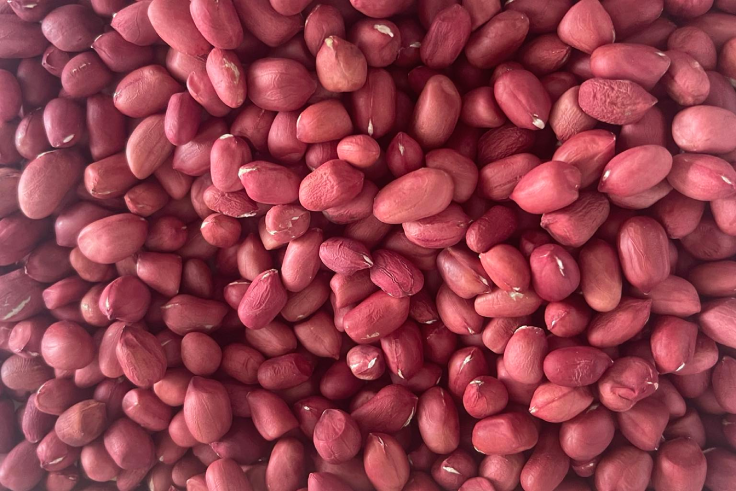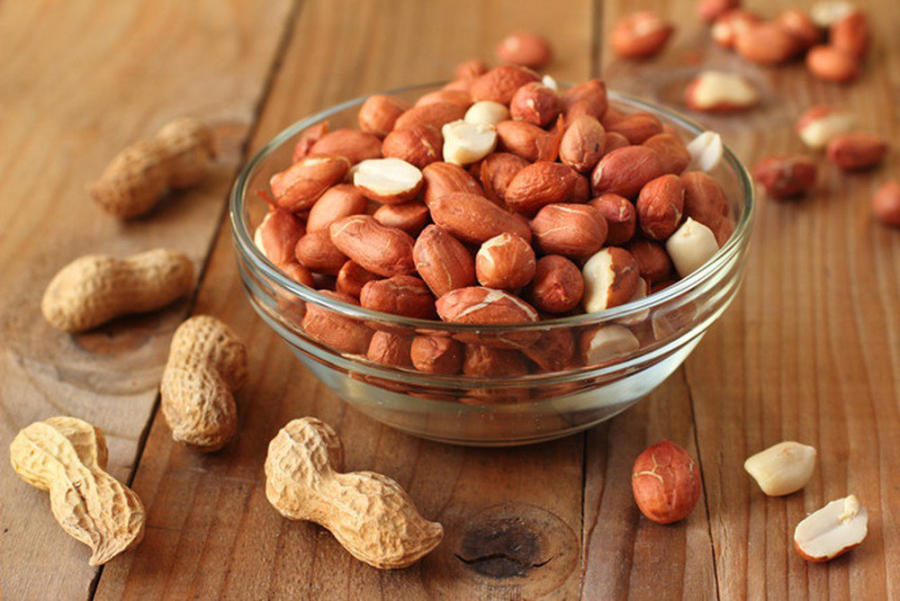Nutritional content of peanuts
In 100g of peanuts, there are approximately 567 calories; 7% water; 25.8g protein; 16.1g carbohydrates; 4.7g sugar; 8.5g fiber; and 49.2g healthy fats.
Fats make up over 49% of the nutritional content of peanuts. The majority of these fats are unsaturated fats, with only a small portion being omega 6 and saturated fats.

Health benefits of peanuts
Cardiovascular health
People have often recognized walnuts and almonds as heart-healthy foods, due to their high content of unsaturated fats. However, studies have shown that peanuts are equally beneficial for cardiovascular health as these more expensive nuts.
Peanuts help prevent heart disease by reducing cholesterol levels. They can also prevent the formation of small blood clots and reduce the risk of heart attacks or strokes.
Reduced risk of diabetes
What are the effects of eating peanuts? Peanuts belong to the group of foods with a low glycemic index, meaning that eating peanuts will not cause a significant increase in your blood sugar levels. Research has shown that consuming peanuts can reduce the risk of developing type 2 diabetes in women.
Anti-inflammatory properties
Peanuts, being rich in fiber, can help reduce inflammation throughout the body and support your digestive system.
Cancer prevention
Research has demonstrated that consuming peanut butter can help reduce the risk of developing a particular type of stomach cancer – non-cardia glandular stomach cancer.
Gallstone prevention
Consuming peanuts with a quantity of 28.35g per week can help reduce the risk of gallstones by 25%.
Prevention and treatment of depression
The nutritional composition of peanuts includes the essential amino acid tryptophan, which plays an important role in the production of serotonin, a compound beneficial to the brain that helps improve mood and alleviate depressive symptoms.
Improved memory
Vitamin B3 and niacin found in peanuts offer numerous health benefits, including improved brain function and enhanced memory.
Reduced risk of birth defects
Folate, found in peanuts, helps pregnant women meet their daily requirement of 400 micrograms of folic acid, resulting in a 70% reduction in the risk of neural tube defects in newborns.

Some considerations when using peanuts
Peanuts can be prepared into various delicious dishes such as boiled peanuts, salted peanuts, or peanut salad. Although many studies have demonstrated the weight loss benefits of peanuts, you should not overconsume peanuts in your daily diet. Furthermore, you should keep the following points in mind:
Avoid eating too many boiled or salted peanuts on an empty stomach. Consuming peanuts on an empty stomach can cause bloating, upset stomach, and discomfort due to the high fat content.
Pregnant women should not consume excessive amounts of peanuts as they can contain allergenic substances.
If you have gout, high cholesterol, or diabetes, excessive consumption of peanuts can be detrimental to your health.



































